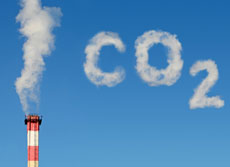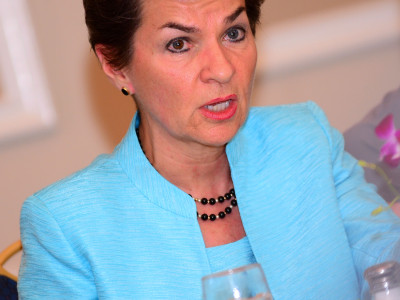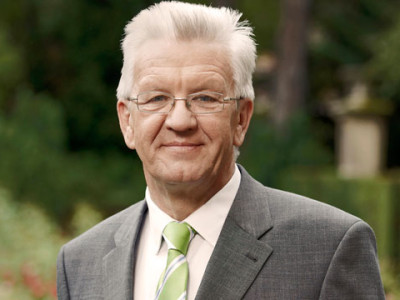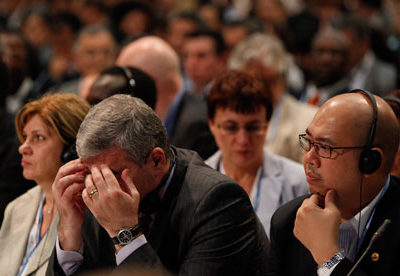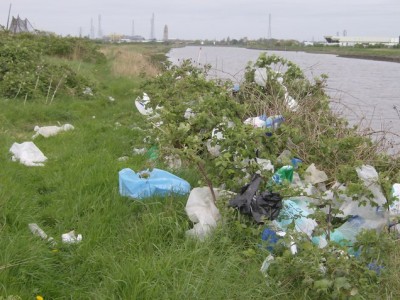International Environmental Law
A Case of Reverse Causation?
Tomorrow’s Emission Determine Today’s Social Cost of Carbon
Here’s the weird thing: the social cost of carbon today, depends significantly on the year-by-year emissions of carbon in the future, which we obviously don’t know. (Because it depends on our own future actions!) It takes some explanation to show why that’s true and how it matters. If you know a bit about climate policy, you know …
Continue reading “A Case of Reverse Causation?”
CONTINUE READINGWhy Paris won’t be Copenhagen
Christiana Figueres, head of the UN climate convention, makes the argument at UCLA
As Executive Secretary of the UN Framework Convention on Climate Change since 2010, Christiana Figueres jokes that it has been her job to “put 195 countries in a better mood” after the overhyped Copenhagen talks in 2009. The Emmett Institute hosted a lunch at UCLA with Ms. Figueres earlier this week, in which she assured California stakeholders that this year’s Paris …
Continue reading “Why Paris won’t be Copenhagen”
CONTINUE READINGThe Next Six Months
A half-dozen crucial developments will shape environmental policy for years to come.
The next six months will be unusually important in environmental law. There are six key areas to keep an eye on: 1. The Paris climate talks. The world’s governments meet every year in December as part of continuing negotiations on climate issues. This year’s meeting will be the most critical since Copenhagen, six years ago. The …
Continue reading “The Next Six Months”
CONTINUE READINGGermany-California Climate Cooperation?
Lecture By Winfried Kretschmann, Baden-Württemberg Minister-President, tonight at UC Berkeley, could be a start
Germany and California represent two global leaders when it comes to addressing climate change. For example, Germany has been on a renewable energy spree, despite its relatively minimal solar insolation, while California has committed to reducing greenhouse gases and incubating emerging clean technology industries, like energy storage, electric vehicles, and renewables. But at the sub-national …
Continue reading “Germany-California Climate Cooperation?”
CONTINUE READINGThe Brazilian Deforestation Puzzle
Deforestation went down for a decade. Now it’s going up. The reasons aren’t clear.
Brazil’s rate of deforestation went down dramatically over the last ten years. It’s not completely clear why that’s happened. The trend now seems to be reversing (or at least encountering an upward blip). But it’s not clear why that’s happening either. I wish I had a clear explanation to give you. A big part of …
Continue reading “The Brazilian Deforestation Puzzle”
CONTINUE READINGShould the WTO Run International Climate Policy?
William Nordhaus’ New Paper Implies That It Should
Last Thursday, Ethan explained the difficulties with attempting to craft a new international climate treaty, and suggested biting off more snackable chunks to work on the problem piece-by-piece (a recommendation I have also made). Now, hot off the presses, the new American Economic Review features a lead article by William Nordhaus suggesting climate clubs as …
Continue reading “Should the WTO Run International Climate Policy?”
CONTINUE READINGThe Futility Of An International Climate Treaty
A scaled-down, step-by-step approach might yield more results
Call it Kyoto Syndrome, but each year for the past few decades we hear hopeful things about the upcoming negotiations for the “United Nations Framework Convention on Climate Change.” These discussions usually take place in some far-flung world capital, but they seem to always result in a nothing sandwich. In 2009, President Obama embarrassed himself …
Continue reading “The Futility Of An International Climate Treaty”
CONTINUE READINGOn China’s Remarkable Viral Air Pollution Video
Can 200 million viewers (and counting) be wrong?
Last Saturday evening, my research assistant (a wonderful JD student raised and educated in China) sent me a message: “This is a link to a documentary directed by Chai Jing (柴静). It has raised public concern about air pollution.” In perhaps the understatement of the year, she added: “Many Chinese people have been watching it.” …
Continue reading “On China’s Remarkable Viral Air Pollution Video”
CONTINUE READINGReferendum Politics: California’s Pioneering Plastic Bag Ban on Hold
Out-of-State Bag Manufacturers Succeed in Qualifying Referendum Measure for 2016 Ballot
California’s recently-legislated ban on disposable plastic bans–the first in the nation–will not take effect on July 1, 2015 as the new law mandates. That’s because industry opponents of the legislation have qualified for the November 2016 election a referendum measure that seeks to repeal the new law. Last fall I wrote on this site about …
Continue reading “Referendum Politics: California’s Pioneering Plastic Bag Ban on Hold”
CONTINUE READINGClimate Engineering: National Academy Committee recommends starting research (with limits)
An NAS report on controversial engineered responses to climate change gets all the big things right, but avoids the hardest questions
Earlier this week, the National Research Council Committee on Geoengineering Climate released two reports, “Climate Intervention: Carbon Dioxide Removal and Reliable Sequestration” and “Climate Intervention: Reflecting Sunlight to Cool Earth.” Requested and funded by several US federal departments – NASA, NOAA, DOE, and the cutely labeled “U.S. Intelligence Community” – this report is the first …
CONTINUE READING




